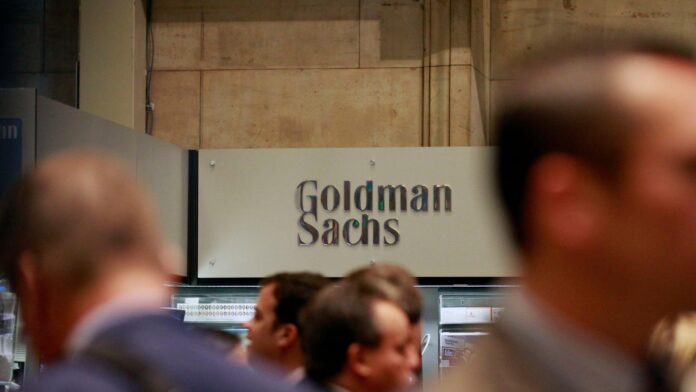Goldman Sachs reported a 15% rise in first-quarter profit on Monday, driven by record revenues from equities trading and solid gains in fixed income amid turbulent markets. The Wall Street giant joined JPMorgan Chase and Morgan Stanley in delivering strong earnings, although investor focus has shifted to economic projections clouded by tariff uncertainty.
Profit for the three months ended March 31 rose to $4.74 billion, or $14.12 per share, from $4.13 billion, or $11.58 per share, a year earlier. Equities trading revenue surged 27% to a record $4.2 billion, while fixed income, currency and commodities trading rose 2% to $4.4 billion. The stock rose 4% in premarket trading.
CEO David Solomon acknowledged the changing environment but expressed confidence in Goldman’s ability to support clients. “We are entering the second quarter with a markedly different operating environment than earlier this year,” he said.
Despite the strong showing in trading, the outlook remains uncertain. Investment banking fees declined 8% to $1.9 billion, with IPOs and M&A activity yet to rebound meaningfully. Goldman’s asset and wealth management revenue slipped 3% to $3.68 billion, though assets under supervision hit a record $3.17 trillion.
Adding to concerns, Goldman raised its estimate of the probability of a U.S. recession to 45%, citing the economic impact of steep new trade tariffs. The S&P 500 has dropped 9% this year, and Goldman’s own shares have fallen 12% since the tariffs were announced earlier this month.
Meanwhile, the bank faces criticism over compensation. Solomon and President John Waldron were each awarded $80 million in restricted stock to secure their leadership for another five years. Proxy advisors Institutional Shareholder Services and Glass Lewis have recommended shareholders vote against the packages at the April 23 annual meeting.
The bank set aside $287 million in credit loss provisions, down slightly from $318 million last year. While Goldman continues to pivot back to its core trading and investment banking strengths after setbacks in consumer banking, market volatility and governance concerns could temper future gains.




